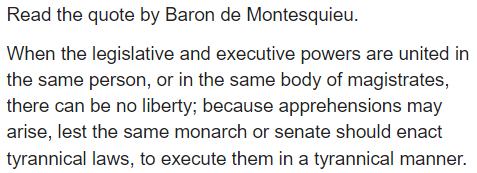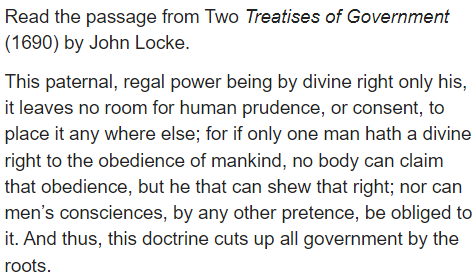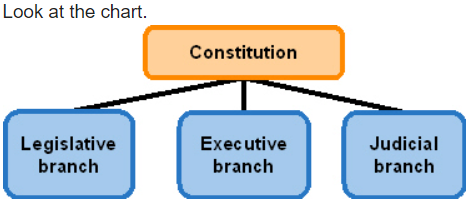Summer School Civics Exam Review Set 1
1/55
There's no tags or description
Looks like no tags are added yet.
Name | Mastery | Learn | Test | Matching | Spaced |
|---|
No study sessions yet.
56 Terms
A bicameral legislature is made up of how many bodys?
Two

Aristotle believed that the citizenss of a successful state must
allow for a diversity of options
The nost important way in which the Greeks influenced American democracy was by allowing
citizens to participate in government
Where did democracy begin?
Greek city-states
How is government in the United States today different from government in ancient Athens?
The United State is a republic

Pericles claimed that the Athenian government, unlike other Greek city-states,
treated all its people fairly regardless of class
Which of these statements best describes the Greek city-states?
Each city-state had its own form of government
In what way did ancient Athens influence the framers of the United States Constitution?
The legislative branch in Athens had two main bodies.
A republic is a form of government where
elected officials represent the people.

Which principle of American government is reflected in this passage from the Bible?
equality of all citizens
In addition to Judeo-Christian principles, American government was influenced by principles first used in ancient Greece and in
Rome
Judeo-Christian principles refer to the religious beliefs and values held in common by
Christians and Jews.
A direct democracy is one in which all citizens
vote on important decisions.
All citizens in ancient Athens took part in government by voting in the
General Assembly.
Because the framers of the US Constitution were concerned about citizens having too much power, they
established a republic.

According to this excerpt, members of Parliament are allowed to
communicate opinions and ideas.

Which heading best fits in the empty box to the right?
Common Law
The English Bill of Rights declared that each member of Parliament had the right to
speak freely.
The English Bill of Rights put limits on the power of
the monarchy.
The Magna Carta was presented to King John in 1215 because people
were tired of his tyrannical rule.
An important effect of the Magna Carta on English government was that it
gave more power to the people and protected their rights.
The Magna Carta led to the creation of Parliament, England’s
legislative branch.
William Blackstone was important because he
created a record of common law.
According to the English Bill of Rights, who makes laws regarding taxation?
Parliament
The divine right of kings is best described as a belief that
a king's authority to rule comes from God.
John Locke thought people were neither good nor bad naturally. How did Hobbes’s views differ from Locke’s?
Hobbes thought people were naturally violent.
How did the philosophers of the Enlightenment view the relationship between government and the governed?
as mutually beneficial for people and government
How did Niccolo Machiavelli’s ideas contribute to Enlightenment thinking?
He examined human nature outside of religion.
Enlightenment thinking on government included
taking a secular approach.
Which factors contributed to the beginning of the Enlightenment movement? Check all that apply.
the age of science and scientific inquiry
the age of reason-based inquiry
the advancement in all areas of human interest
Under what circumstances did John Locke think it would be acceptable for the people to overthrow the government?
If the government violated the social contract, the people could overthrow the government.
According to John Locke, _________ must respect the rights of the citizens.
rulers
What did philosophers of the Enlightenment have faith in, believing it could answer questions and solve problems?
human reason
The key idea of John Locke’s Enlightenment theory was to protect and enhance the freedoms and rights of
the individual.
Which act could be considered an acceptance of the social contract?
observing traffic laws in exchange for driving on the highway
Locke argued that all humans are born with what natural rights?
life, liberty, property
How did the Enlightenment’s theories of government view the role of government?
as useful
Why did Montesquieu advocate the separation of powers?
to limit the power of any single group or person

According to the quote, ______ is lost if one person has too much power.
freedom
John Locke believed that natural rights
do not come from the government.
What must people provide in order to be governed under a social contract?
rational consent to the government
What did the philosophers of the Enlightenment seek to understand?
the natural rights governing human behavior and society

Which statement best explains an Enlightenment position on the divine right to rule?
If only one person has the authority to rule, then no one else, even members of government, may have authority, so divine right undermines civil society.
Enlightenment thinkers questioned
government authority.

Which Enlightenment concept does this chart illustrate?
separation of powers
Which best describes Alexis de Tocqueville?
He was a French historian and political scientist who championed “uniquely American” values such as egalitarianism.
Which of the following principles did the Founders use as part of the basis for the Constitution?
popular sovereignty
Which of the following is the best example of populism?
A government allows its people to govern themselves.
De Tocqueville’s travels throughout the United States led him to conclude that it was
a unique country.
Which statement best describes the republican form of government that the Founding Fathers envisioned?
a government run by people elected to lead the country
The concept of voting rights is based on
popular sovereignty.
De Tocqueville observed the laissez-faire government in the United States, which meant that the government
stayed out of people’s affairs.
During his trip to the United States, Alexis de Tocqueville observed that Americans
believed in the idea of populism.
A social contract is an agreement between
a government and its citizens.
The Enlightenment thinker Baron de Montesquieu came up with the idea of
the separation of the government’s powers.
A similarity between the separation of powers, the system of checks and balances, and federalism is that they
are all ways that the Constitution limits government power.